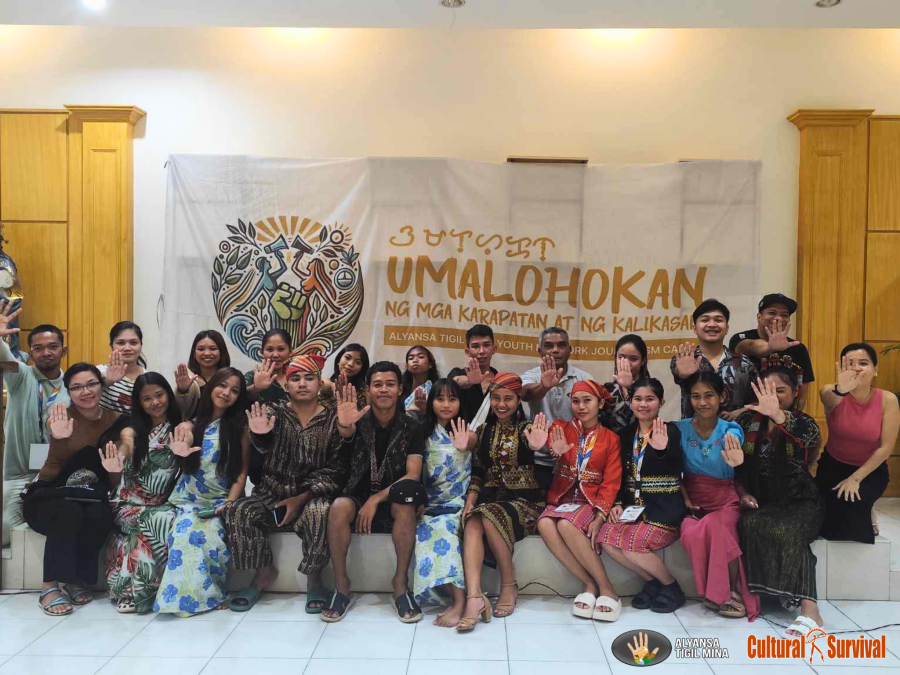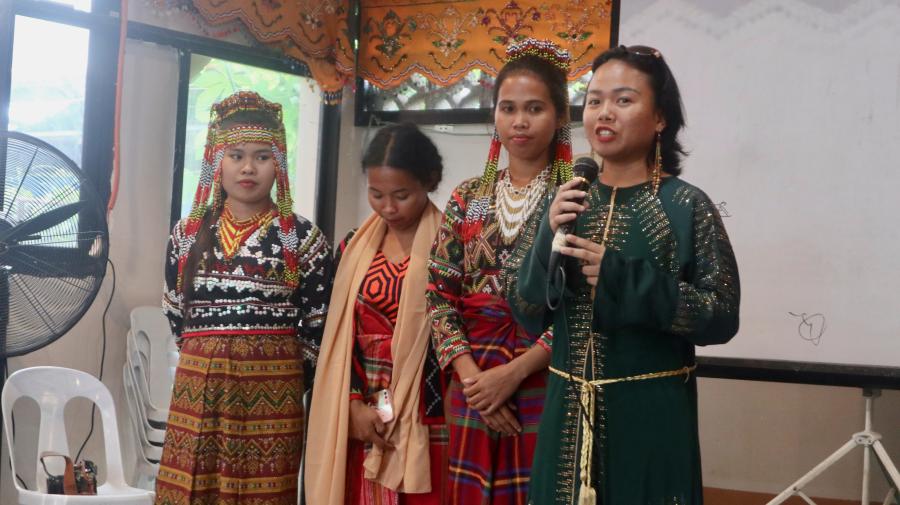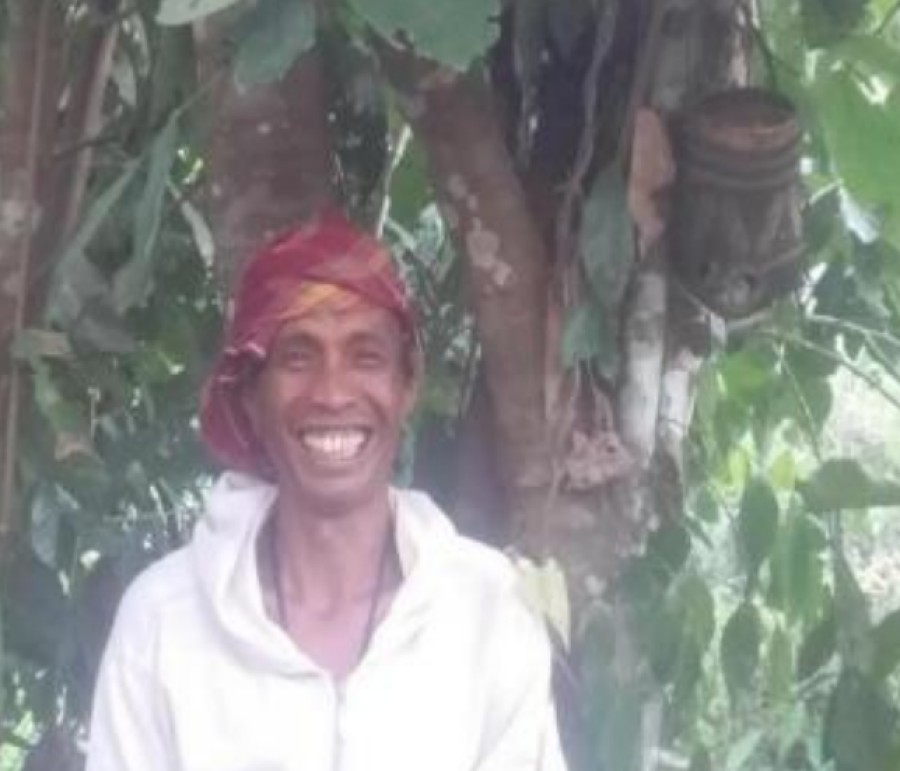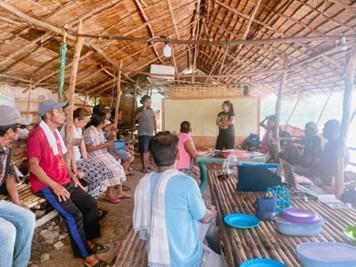
By Patricia Mae D. Aliño
Oral traditions such as storytelling are integral to safeguarding Indigenous communities’ cultures and practices worldwide. These traditions are filled with cultural values that help succeeding generations gain a deeper understanding and appreciation of their communities and identities. Through their oral traditions, Elders pass on intangible cultural heritage and practices to the future leaders and members of their communities. However, the influx of new technologies, combined with the assimilation of young Indigenous Peoples into mainstream society, are slowly replacing traditional practices.
Like most Indigenous communities around the world, Indigenous Peoples in the Philippines face constant threats to their traditions and heritage due to the acculturation brought about by western models of education and everyday living. In early childhood education, for example, most reading materials educators use are from mainstream culture. The lack of materials and resources from Indigenous cultures and languages makes teaching and learning difficult for the educators and students in Indigenous schools.
While storytelling is at the heart of many Indigenous cultures, it is largely practiced as an oral tradition and has rarely been translated into written form or used in formal education. Indigenous leaders are worried that if they are not able to pass their oral traditions on to the younger generations, their culture will eventually die. On the other hand, amidst the constant threat of cultural appropriation, Indigenous Elders and leaders fear that if their stories are written and translated by outsiders, their perspective will be lost.
Cartwheel Foundation Inc. is a nonprofit NGO based in the Philippines that seeks to empower Indigenous Peoples nationwide by harnessing their self-sustaining capacities through culturally relevant education. Cartwheel Foundation’s vision is to aid in promoting and fostering spaces for Indigenous children to have a greater appreciation of their heritage and cultures. It is this vision that led to the creation of the Learning through the Arts, Heritage, and Cultural Identity (L.A.H.I.) book collection. ‘Lahi’ is a Filipino word that refers to ancestry, generation, and succession—words that capture the essence of the project. The book collection is a celebration of Indigenous ethnicity where culture, heritage, values, and traditions are showcased through Indigenous stories by community Elders and culture bearers. It aims to promote the intergenerational transfer of Indigenous knowledge, skills, values, and practices to the younger generation through picture books with accompanying arts-based activities.
The project drew inspiration from two common practices observed among Indigenous communities as ways of coping in times of adversity, particularly in the aftermath of violent conflict: community dialogue and cultural artforms, including traditional songs, dances, and visual art rooted in Indigenous heritage. In the context of the project, this translated to nurturing spaces for telling stories and integrating expressive arts into the practice.
Story Circles
The L.A.H.I. book series commenced in 2021 and concluded earlier this year. For the first book anthology, we partnered with two Sama Bajau communities. We facilitated online story circles as a method of gathering stories from our partners, who consisted of daycare center teachers and mothers wanting more culturally relevant materials for their children. The story circles provided a safe space to deepen the community members’ connection to each other, and with their own cultural heritage. The storytelling-centered approach allowed us to draw out stories that exhibit the intangible cultural heritage of their communities.
Storytelling is especially important to Indigenous Peoples because it is a powerful way for leaders and Elders to impart knowledge to the younger generation. Stories adapt through time; the stories told ages ago can be made relatable today, primarily because the values we take from these stories still apply today, and will apply in the future. The appearance or packaging might change, but the soul of the story lives on.
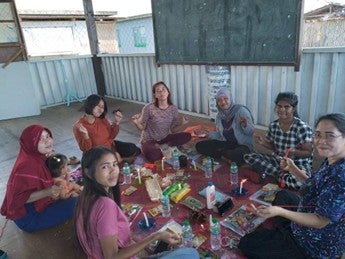
Sama-Bajau partners in Zamboanga City, Philippines.
The successful implementation of the first book project led to additional partnerships and the creation of two more book anthologies with two other Indigenous communities in the Philippines: the Talaandigs of Bukidnon and the Tagbanwas of Palawan. As pandemic-era restrictions eased, we were able to visit their communities and conduct three-day workshops with Elders and leaders. Through story circles held in 2022 and 2024, we gathered six stories each from the Talaandig and Tagbanwa communities.
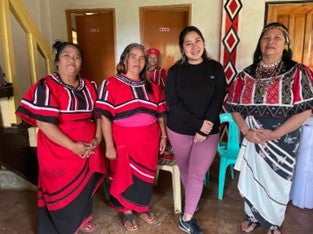
Patricia Aliño, story circle facilitator and CFI Consultant, with Talaandig women Elders in Bukidnon, Philippines.
Looking Forward
In total, the L.A.H.I. book series project was able to gather 18 stories from 3 Indigenous communities in the Philippines—the Sama Bajau of Parañaque and Zamboanga, the Talaandig of Bukidnon, and the Tagbanwa of Culion, Palawan—and publish three book collections. The book collection has been distributed to 21 schools across the 3 communities, benefiting 560 children from ages 3 to 12. It is our hope that these efforts will be replicated in other Indigenous communities, and in time, also open up avenues through which mainstream society can learn from the age-old wisdom and time-tested resilience of Indigenous Peoples.
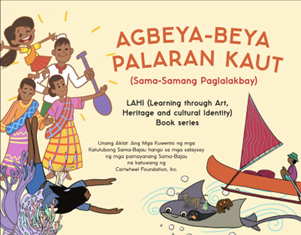
Book 1: “Agbeya-Beya Palaran Kaut” (Journeying Together)
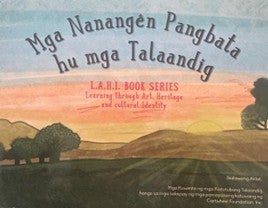
Book 2: “Mga Nanangên Pangbata hu mga Talaandig” (Talaandig Children’s Stories)
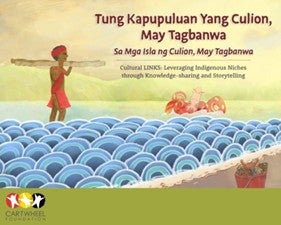
Book 3: “Tung Kapuluan Yang Culion, May Tagbanwa” (In the Islands of Culion, Live the Tagbanwas)
While our Indigenous partners have been generous and willing to share their oral traditions to others, it is important for readers, especially those from outside their communities, to be aware of the sanctity of the dances, stories, and rituals depicted in the storybooks, as they form part of the essence of being Indigenous. The Elders who participated approach these practices and traditions with respect, and continually remind us that the knowledge shared is not something that they share without the blessings of the spirits. As such, it is advised to approach the knowledge shared with reverence and respect. While the Cartwheel Foundation led the facilitation, writing, and production of the books and arts-based activities, the partner Indigenous communities are considered the rightful owners of the material and are responsible for its management, proper handling, and use.
--Patricia Mae D. Aliño is a strong advocate for Indigenous rights in the Philippines. She has worked for multiple government and non-government organizations in the Philippines in the past decade and is helping push for reforms in Indigenous early childhood education in the Philippines, modeled after the Closing the Gap program of Australia. She currently resides in Canberra, Australia with her son and husband.
Top photo: Community consultation of final book output with Tagbanwa partners in Culion, Palawan, Philippines.
